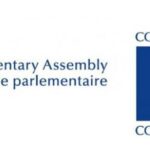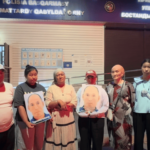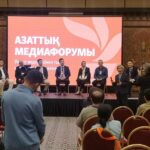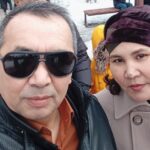Yevgeniy ZHOVTIS’s speech during
“Approaching the OSCE Chairmanship: Kazakhstan
May 12, 2009
Mr. Chairman,
Distinguished Members of the
Thank you for the opportunity to speak at these hearings.
A year and a half ago, in October 2007, I had a chance to testify here on the challenges of democratic development, the rule of law and human rights implementation in my country. It was before OSCE member-states have made their decision regarding
At that time many of the human rights organizations, both inside the country and internationally, expressed their concern regarding the fact that this decision has been guided basically by geopolitical, economic and energy considerations, and as a result the country, falling far behind OSCE standards in the human rights area and primarily in the area of political rights and civil freedoms, would chair the OSCE.
Back in those days many people believed that this decision and Kazakhstan chairmanship in OSCE would encourage democratic process in our country, would give a chance to bring legislation and practice closer to international standards in the area of democracy and human rights, which has been, among other things, declaratively confirmed by the Minister of Foreign Affairs Mr.Tazhin, who pledged in
Mention should be made that the decision on chairmanship of Kazakhstan in OSCE was made regardless the amendments into the Constitution and election legislation endorsed in 2007, which enhanced the authoritarian nature of the current political regime (I am leaving with you the review of these amendments made by us), and notwithstanding parliamentary elections that took place the same year, as result of which not a single representative of political opposition has been elected to the Parliament regardless the fact that four, as a minimum, oppositional political parties with formal total number of not less than 250 thousand members participated in the elections. The current Parliament and all the local representative power bodies consist almost by 100% of the representatives of the only party «Nur-Otan», which by its formation mode, functioning methods and propaganda scope reminds more of the Communist Party of the
It is fair to say that since the time the decision on chairmanship of
Firstly, this is the ratification of the Optional Protocol to International Covenant on Civil and Political Rights, which allows
Secondly, this is the ratification of the Optional Protocol to UN Convention against Torture and Other Cruel, Inhuman or Degrading Treatment or Punishment, in line with which Kazakhstan has to create an independent system of visits of all the custody places in the space of the current year, and this work is going on rather actively with the participation of Kazakhstan Ombudsman.
Thirdly, these are the statements made by the authorities regarding Articles 21 and 22 of the UN Convention against Torture, which allows the citizens of
And finally, while listing positive things mention should be made of improved openness of state power structures, their preparedness to constructive cooperation with non-governmental organizations, setting up a number of advisory bodies, working groups, public councils, within the framework of which a more intensive dialogue is going on between the power bodies and civil society.
However this is all as far as positive things are concerned. Unfortunately the rest of the talk should be about serious concerns and negative trends.
In the mid of the last year a group of leading non-governmental human rights organizations of Kazakhstan set up a Coalition «Kazakhstan–OSCE 2010», which monitors the implementation of commitments of Kazakhstan within the OSCE framework, including promising statements made by Mr.Tazhin. The Coalition has published a number of reviews; the latest ones are on display here for you. At the end of the last year amendments and additions were made into the legislation related to elections, political parties and mass media, which were of ornamental, make-up nature, not changing anything in reality. And if amendments into the media-related legislation at least have not changed anything to worse, amendments into the legislation pertaining to political parties created additional obstacles to the formation of political parties having introduced a two-stage procedure for political party registration, first its organizational committee and then political party itself. By the way, when speaking here in 2007 I gave as an example a lengthy registration of the oppositional party “Alga”. In a year and a half this party is still unregistered.
Amendments introduced into election legislation have not taken into account any of the five principal and essential proposals made by the oppositional political parties and human rights organizations. In the course of the local elections into representative power bodies held in Almaty in spring of the current year all the principal candidates from opposition have not been even registered as candidates under absolutely farfetched and wanton reasons.
At the end of the last year the Parliament endorsed amendments into the Law on Religion that run contra to basic OSCE standards. Regardless the fact that these amendments have been recognized as unconstitutional by the Constitutional Council their main ideas are being implemented. In the course of the entire last and the beginning of the current year members of the national security bodies, law enforcement bodies practiced raids in relation to gatherings of small religious communities, including those held in private houses and many foreign missionaries are being evicted out of the country on the basis of arbitrary interpreted and antidemocratic procedures of their accreditation.
Ms.Drenicheva, a citizen of
At the beginning of the current year an independent newspaper «Taszhargan» was fined for the sum of 20.000 USD for the publication of a critical article with regard to one of the Parliamentary Deputies. The court of appellate jurisdiction considering the appeal of the news-paper increased this sum to 200.000 USDr, which in reality resulted in the closure of the given newspaper
The Editor-in-chief of an independent newspaper “Almaty-Info” Ramazan Yesergepov is in custody since the beginning of this year; he is accused of disclosure of state secrets, which is expressed in publication of an internal letter of one of the regional national security field offices; in fact this letter does not contain any secrets apart from the information that the national security bodies interfere into the court and prosecutor office activity under one specific criminal case.
Criminal process is being finalized in Almaty under the accusation of three opposition leaders and public figures in concealment of a crime – that is in signing letters in
The Draft Law on Internet that is currently under discussion in the Parliament could be mentioned here as well because it will practically put Kazakhstan Internet segment under total control of the powers, which is pretty much similar to censorship. I also should mention the practice depriving the people of
Due to the shortage of time I limited myself only to a number of problems and specific cases related to human rights violations, which are of both system and practical nature.
It is less than half a year left till the time when
Thank you for your attention.
















